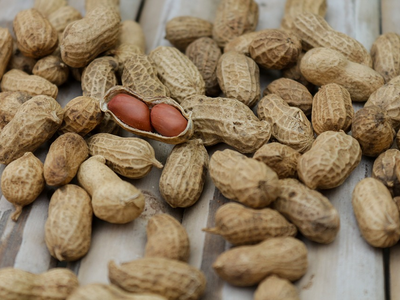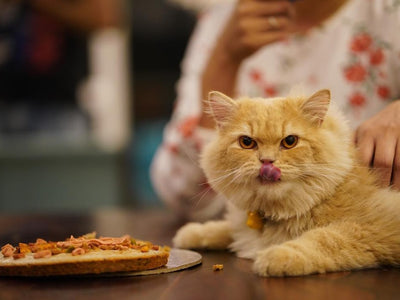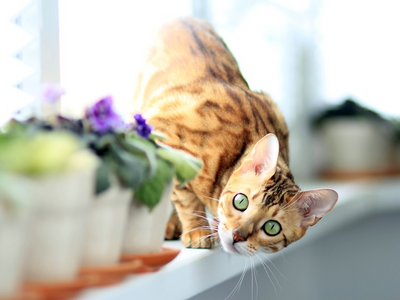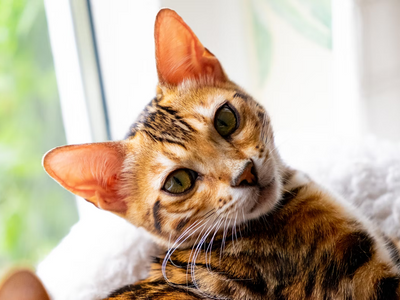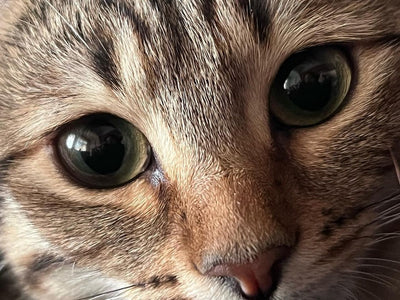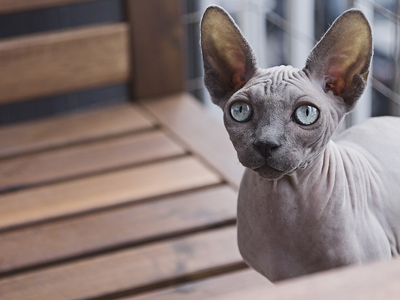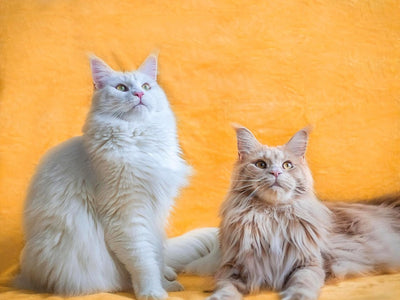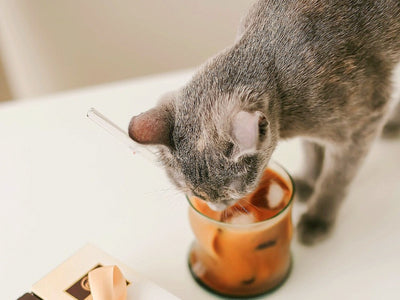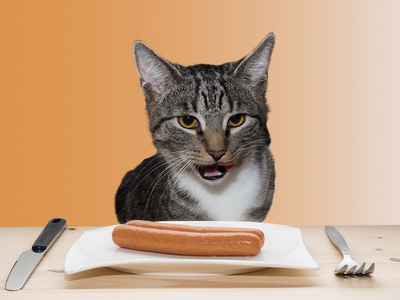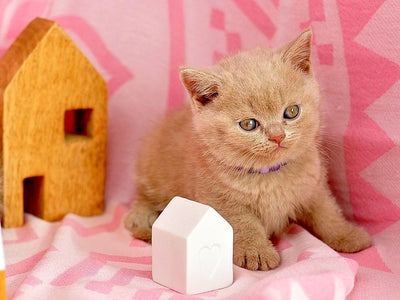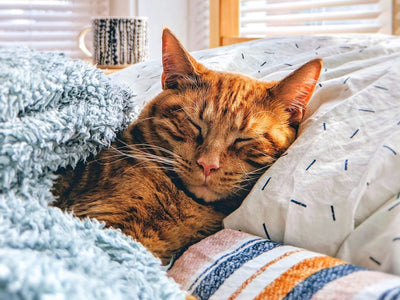13.12.2021
Persian cat food—here’s what you should know!
Persians have a unique body type making them look regal and gorgeous. They have a medium-sized yet big-boned physique, but their dense, fine-haired coats make them appear larger than they are.
When buying Persian cat food, you must take their stocky build into account and choose products that prevent muscle wear and tear, keep their energy levels up, and stop excessive shedding.
Another problem with Persians is that they have been relatively inactive indoor cats for centuries, which makes them prone to various medical issues, like diabetes and obesity. They need a carefully designed meal plan to ensure their long-term welfare.
If you feel unsure about what to feed to your Persian, Untamed presents the ins and outs of feline nutrition to help you find the best products for your precious kitty! We also offer some handy tips for the general care of this irresistible breed.
Persian cat food—suggestions for an optimal diet
Persians are not likely to burn calories chasing rodents around the house, so it’s imperative to avoid a calorie surplus in their diet. While they may be laid-back homebodies, Persian cats are strictly carnivorous like their ancestors, so they should digest and absorb nutrients from meat. Nutritionists recommend sticking to the feline natural diet and giving Persians food rich in whole meat, fish, and organs. An optimised diet for this breed should have:
- High protein content from whole meat
- Low to no carbs (grain-free or carb-free meals are preferable)
- An adequate combination of vitamins and minerals prescribed by vets
- Moisture content depending on your cat’s size
Finding the right type of food is not enough. You should also pre-portion your Persian’s meals according to their daily caloric needs and activity levels. Opposed to frisky breeds like Siamese and Bengals, Persians are mostly inactive couch-enthusiasts and need fewer calories for sustenance. They usually require about 40–45 calories per day for every kilo of their body weight. The average weight of adult Persian cats is presented in the following table:
|
Gender |
Weight range |
|
Persian male |
3.3–4.7 kg |
|
Persian female |
2.4–3.8 kg |
Most Persians stay lean and energetic on a 180–230 calorie diet, but those who exercise or are pregnant or lactating may need more.
What should be the source of calories for Persian cats?
Persian cats should get 90% of their daily calories from animal protein and fat. While they can harness energy from carbohydrates, it doesn’t suit the digestive tract of obligate carnivores who thrive on a zero-carb diet. Cats can synthesise about four calories from one gram of protein and nine calories from one gram of fat. An ideal Persian cat diet consists of meat proteins and a minimal amount of energy-dense fats.
Why are proteins crucial in food for Persian cats?
According to a research study conducted by the Royal Veterinary College (RVC), there are about 100,000 Persian cats in the UK. An astounding 64.9% of them suffer from specific health conditions—coat and dental issues being the most common. A diet lacking in protein is one of the top culprits because these nutrients maintain the primary structure of fur, skin, nails, and teeth.
Besides contributing to their daily energy requirement, proteins are essential for numerous bodily functions, such as:
- Development of bones and muscles
- Cell regeneration
- Balanced hormone production
- Production of antibodies to fight off infections
- Optimisation of brain and neural function
This essential nutrient should come from meat, poultry, or fish. Animal proteins provide two vital amino acids—taurine and arginine—that cats cannot synthesise themselves. Vegetable proteins don’t have the necessary amino acid profile and score low on digestibility and bioavailability scales for felines.

I’m not entertaining complaints about my ungroomed coat, slothful human. Not today.
Source: Rodrigo dos Reis
How much protein do Persians need?
Persians, like other cats, need proteins proportionate to their body weight and activity level. The table below will give you an approximate range of the amount they need as recommended by nutritionists:
|
Body weight |
Daily intake of proteins |
|
2 kg |
6–10 g |
|
3 kg |
9–13.5 g |
|
4 kg |
12–18 g |
|
5 kg |
15–22.5 g |
|
6 kg |
18–37 g |
As a general rule, Persian cat food should have up to 50% protein. An extreme deficiency can cause rapid muscle loss and anorexia, especially in seniors.
What about other nutrients in a Persian cat’s diet?
Besides proteins, cats need fats, vitamins, minerals, and moisture in their diet. We’ll give you a quick overview of each nutrient.
Fat
Persians need small amounts of fatty acids to maintain proper organ function and regulate body temperature. Whole meats usually offer the necessary amount. Be careful if you are buying off-the-shelf products. Many commercial manufacturers overload their food with unhealthy fats to improve the taste and texture, increasing the risk of obesity and liver and heart disease in felines.
Many cat parents inadvertently give their felines too much fat with unhealthy snacks, like eggs, cow’s milk, cheese, fried chicken skin, and crisps.
Vitamins and minerals
Persians need vitamins and minerals in recommended doses to support metabolic processes. Vitamins A and E prevent oxidative damage, while minerals like sodium, potassium, and chlorine help maintain adequate acidity levels.
You don’t have to add these dietary supplements to your Persian’s diet as long as you buy complete cat food with minimum levels of essential nutrients. If you are giving them homemade meals, consult your vet to check if your cat needs multivitamin or mineral supplements.
Moisture
Moisture supports kidney function and helps cats flush out the toxins from their blood. Mild to severe dehydration in felines can lead to:
- Constipation (caused by slowed metabolism)
- Irritable bowel syndrome (IBS)
- Formation of oxalate or struvite stones
Persian cats stay adequately hydrated on 200–250 millilitres of water per day, consumed directly or through wet food, soups, and broths. You may need to give them more water if they’re experiencing fluid loss (diarrhoea or vomiting) due to allergies, stomach sensitivity, or food poisoning.

Charming and regal—ya know what makes me tick? Good food and an attentive human, of course!
Source: Sergey Semin
Cat food for Persians—ingredients to avoid!
If you want to keep your Persian healthy and happy, avoid cat food containing the following ingredients:
- Undefined meat—Products with an unclear meat source on the label are a no-no. Vague terms like “animal derivatives,” “meat and bone meal,” “chicken meal,” and “fish meal” mean the product is made from animal by-products unfit for human consumption. Get products tagged as “Whole Meat” for your Persian, even better if the meat is human-grade
- Carbohydrates in any form—Cats don’t need carbohydrates, but many manufacturers use them as fillers. Persians on sugar, grains, and starch gain weight easily, often developing feline diabetes and arthritis along the line. This breed may also suffer from gastrointestinal distress due to intolerance to specific carb-rich ingredients, like corn
- Chemical preservatives, taste enhancers, and artificial colours—Opt for products with natural preservatives and no added colours or taste enhancers. Artificial additives and colours may increase the palatability or visual appeal of products but are mostly used to mask subpar ingredients
- Cellulose—Cats cannot digest cellulose, but some manufacturers use it as a fibre source. Cellulose may push food too quickly through the feline digestive system, preventing them from absorbing the nutrients
- Salt—Persians need food with minimum to no salt as it can lead to hypertension and kidney damage
The texture of Persian cat food
Persians can be notoriously finicky about the taste and texture of their food. Let’s take a look at how different food types work for them:
- Dry food—Dry food may be affordable, but vets aren’t too keen on a kibble diet for Persians because it contains a high percentage of carbs and not enough animal protein. Dry food is also heavily processed, which weakens the potency of nutrients. If you have to use biscuits, offer them as snacks or one of the meals to your Persian
- Wet food—Persians should eat wet food with quality whole meat. It hydrates them and keeps common feline illnesses at bay. Many cat parents shy away from wet food, thinking their Persian will make a mess while eating it. The problem is not the food consistency but the brachycephalic face structure of this breed. Persians have flat faces and tiny mouths, which makes eating from spherical bowls challenging. If messy eating is an issue:
- Replace their hollow bowl with a flat dish
- Give them chunky gravy and jelly food instead of pate, as pureed meals tend to stick to their face and whiskers
- Combination of wet and dry food—You can soften up kitty biscuits with wet food to create a semi-moist texture but control the portions because you are serving two meals. Your Persian can turn into a binge eater if you’re not careful

The best cat food for a Persian kitten contains highly digestible meat proteins that promote muscular growth and brain development.
Source: Dan Wayman
Best cat food for Persian kittens
Persian kittens have different feeding requirements, depending on their development stage—we have outlined them below:
- Kittens yet to be weaned off—If you’ve rescued a motherless Persian kitten, you must feed them specialised kitten formula. Avoid giving them other mammalian milk as kittens don’t have the enzymes to digest non-feline milk
- Kittens starting on solids—Persians can be weaned off anytime between their 6th and 10th week. It’s important to introduce small doses of solid food to avoid overstressing their system, which usually leads to a nasty bout of kitten diarrhoea, consequently causing dehydration
- Weaned-off kittens—Once your Persian is completely on solids, feed them three to four meals a day till they are six months old. You can transition them to a schedule of two or three meals a day, depending on their weight and activity preferences
What do Persian kittens eat—dry or wet food?
Kitten food can be both dry and wet. Nutritionists believe the best Persian kitten food should be hypoallergenic, single-protein wet food to avoid gastrointestinal issues. You can gradually move to multi-protein meals as they get older.
Be careful about feeding your kitten only dry food. Kittens addicted to the texture of kibble may reject wet or raw food as adults.

Aroma no Persian cat can ignore—Untamed wet food delivers exactly what they desire!
Image (c) Untamed
Untamed offers the best Persian cat diet!
You don’t have to worry about giving perfect meals to your Persian feline because Untamed offers an elegant solution! Our scrumptious gravy and jelly food is the ultimate solution for kittens, adults, and older cats.
Untamed products are excellent for your Persian because we:
- Use human-grade whole meats—We use prime cuts of fresh human-grade meats like chicken, tuna, duck, salmon, mackerel, and shrimp for our preparations. All our products are high-protein, offering twice more than the industry average. We don’t use vegetable proteins, or fillers like grains, sugar, and animal derivatives
- Provide balanced nutrition—Our recipes provide essential nutrients like vitamin E and taurine. If your Persian struggles with weight management or low immunity, switch to our products and observe the improvement of their overall health!
- Make bioavailable meals—All our products have high digestibility and bioavailability because we use natural ingredients and gentle cooking methods to preserve the nutrients. Our steam-cooked food locks in the aroma that entices even the pickiest Persians!
- Offer single- and multi-protein options—We offer single- and multi-protein food without any known allergens. Our single-protein products—Chocka Chicken in Gravy and Tuck-in Tuna in Gravy—are ideal for sick or recuperating cats or kittens with sensitive tummies
Take our TRY NOW quiz and get an Untamed taster pack for your feline at an excellent price!

No growing pains or ageing miseries—Untamed is the purrfect food for all cats!
Image (c) Untamed
We’re versatile—Untamed’s formulas work for every feline!
Untamed serves the best meals, tailored not only to Persian cats but every other breed as well. Whether you have a Ragdoll or a British Shorthair, our tasty and healthy products impress the feline royalty without a shred of doubt! Based on what we’ve heard from our satisfied clients, here’s what you can expect after going Untamed:
|
Period on Untamed |
Timeline of benefits |
|
One week |
● Easy digestion ● Satisfactory poo consistency |
|
Two months |
● Regular pooing habits ● Balanced energy levels due to a whole meat diet ● No mood swings |
|
Four months |
● Sleek and shiny coat |
|
Six months and beyond |
● Effective weight management ● Improved immunity ● Graceful ageing |
Our products are convenient for cat parents as well. We offer storage-friendly tins with a shelf life of three years. There’s no fuss of freezing, defrosting, or heating our food—all you have to do is open the tin and serve the food.
One chore down—our hassle-free deliveries will make life simpler for you!
If you want expedited cat food deliveries to your doorstep, trust Untamed to come through!
Follow these steps to get your first taster pack:
- Complete our TRY NOW quiz to tell us about your cat’s food preferences
- Select the products you like
- Place the order
If your cat approves, we will replenish your supplies every month. Our terms are transparent and straightforward—you can modify, pause, postpone, or cancel your cat food order online whenever you like.
We meet the highest standards of ethical cat food production. Untamed believes in sustainable growth, so we get our meat from reliable and cruelty-free sources and use recyclable packaging for all our products.

An unlimited lifetime supply of happiness—order your Untamed taster pack today and watch your furry friend blossom!
Image (c) Untamed
What food do Persian cats like to eat as snacks?
Persian cats have a soft spot for meat- and fat-based snacks. While meat treats are okay, it’s better to lay off fattening treats if your Persian is on the chubby side. Here are some other snacks you can try:
- A.R.F. treats (freeze-dried raw chicken, raw bones, etc.)
- Fruits like strawberries, bananas, and watermelons (served in bite-sized pieces)
- Small servings of soft-cooked veggies like pumpkin and peas
- Yoghurt
Avoid giving your Persian any random food off your kitchen counter. Certain foods can be harmful to cats, especially grapes and raisins, chocolate, raw yeast, alcohol, onions, garlic, chives, etc.
Is caring for Persian kitties time-consuming? Here are some pro hacks!
Here are some tips and tricks to help you care for your Persian in the best possible way:
- Grooming—Brush your Persian’s coat at least twice a week to prevent tangles. Also, trim their front and back claws once every two weeks. Use treats as positive reinforcement if they turn into finicky divas during grooming
- Managing hairballs—Regular brushing reduces hairballs, while a protein-rich diet naturally strengthens their fur roots
- Dental care—Regularly check for tartar build-up on your cat’s teeth and schedule dental appointments to get their pearly whites cleaned up. Seniors can have a hard time if they lose all their teeth over time. If they reject their usual food due to discomfort, switch to something with a soft, easy-to-swallow texture
- Eye and ear cleaning—Eye and ear infections can go unnoticed in Persians because they’re so fuzzy. Vets recommend using a soft cotton pad to clean the goop from their eyes every day. As for ear cleaning, use a prescribed ear-cleaning solution to wipe out oil or dirt from ear canals. Contact your vet immediately if a smelly discharge oozes from their ears
- Genetic health issues—Persian cats are more likely to suffer from respiratory problems due to their narrow, brachycephalic airways. With age, many Persians also develop ailments like cystitis, retinal atrophy, and cancer. Getting your cat neutered or spayed can prevent certain tumours, but you should have them checked periodically for early detection or treatment of other hereditary health issues

![Associated image for What human food can Sphynx cats eat? [Comprehensive list]](http://untamed.com/cdn/shop/articles/what_human_food_can_sphynx_cats_eat_Featured_400x300_crop_center.jpg?v=1648705074)
